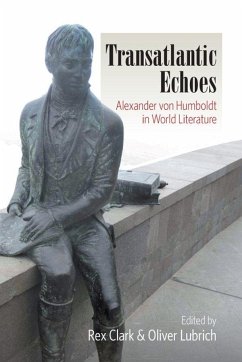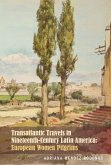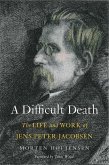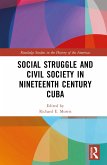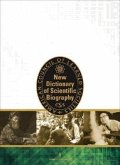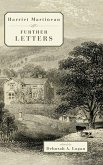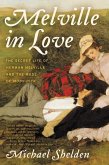Transatlantic Echoes
Alexander Von Humboldt in World Literature
Herausgeber: Clark, Rex; Lubrich, Oliver
Transatlantic Echoes
Alexander Von Humboldt in World Literature
Herausgeber: Clark, Rex; Lubrich, Oliver
- Gebundenes Buch
- Merkliste
- Auf die Merkliste
- Bewerten Bewerten
- Teilen
- Produkt teilen
- Produkterinnerung
- Produkterinnerung
Alexander von Humboldt (1769-1859) was a world traveler, bestselling writer, and versatile researcher, a European salon sensation, and global celebrity. Yet the enormous literary echo he generated has remained largely unexplored. Humboldt inspired generations of authors, from Goethe and Byron to Enzensberger and García Márquez, to reflect on cultural difference, colonial ideology, and the relation between aesthetics and science. This collection of one-hundred texts features tales of adventure, travel reports, novellas, memoirs, letters, poetry, drama, screenplays, and even comics-many for the…mehr
Andere Kunden interessierten sich auch für
![Transatlantic Travels in Nineteenth-Century Latin America Transatlantic Travels in Nineteenth-Century Latin America]() Adriana Méndez RodenasTransatlantic Travels in Nineteenth-Century Latin America154,99 €
Adriana Méndez RodenasTransatlantic Travels in Nineteenth-Century Latin America154,99 €![A Difficult Death A Difficult Death]() Morten Høi JensenA Difficult Death35,99 €
Morten Høi JensenA Difficult Death35,99 €![Social Struggle and Civil Society in Nineteenth Century Cuba Social Struggle and Civil Society in Nineteenth Century Cuba]() Social Struggle and Civil Society in Nineteenth Century Cuba183,99 €
Social Struggle and Civil Society in Nineteenth Century Cuba183,99 €![New Dictionary of Scientific Biography: 8 Volume Set New Dictionary of Scientific Biography: 8 Volume Set]() New Dictionary of Scientific Biography: 8 Volume Set2.279,99 €
New Dictionary of Scientific Biography: 8 Volume Set2.279,99 €![Harriet Martineau Harriet Martineau]() Deborah Anna LoganHarriet Martineau216,99 €
Deborah Anna LoganHarriet Martineau216,99 €![Track Conditions Track Conditions]() Michael KleinTrack Conditions20,99 €
Michael KleinTrack Conditions20,99 €![Melville in Love Melville in Love]() Michael SheldenMelville in Love23,99 €
Michael SheldenMelville in Love23,99 €-
-
-
Alexander von Humboldt (1769-1859) was a world traveler, bestselling writer, and versatile researcher, a European salon sensation, and global celebrity. Yet the enormous literary echo he generated has remained largely unexplored. Humboldt inspired generations of authors, from Goethe and Byron to Enzensberger and García Márquez, to reflect on cultural difference, colonial ideology, and the relation between aesthetics and science. This collection of one-hundred texts features tales of adventure, travel reports, novellas, memoirs, letters, poetry, drama, screenplays, and even comics-many for the first time in English. The selection covers the foundational myths and magical realism of Latin America, the intellectual independence of Emerson, Thoreau, Poe, and Whitman in the United States, discourses in Imperial, Weimar, Nazi, East, and West Germany, as well as recent films and fiction. This documented source book addresses scholars in cultural and postcolonial studies as well as readers in history and comparative literature.
Hinweis: Dieser Artikel kann nur an eine deutsche Lieferadresse ausgeliefert werden.
Hinweis: Dieser Artikel kann nur an eine deutsche Lieferadresse ausgeliefert werden.
Produktdetails
- Produktdetails
- Verlag: Berghahn Books
- Seitenzahl: 480
- Erscheinungstermin: 1. April 2012
- Englisch
- Abmessung: 237mm x 161mm x 30mm
- Gewicht: 769g
- ISBN-13: 9780857452658
- ISBN-10: 0857452657
- Artikelnr.: 34377694
- Herstellerkennzeichnung
- Libri GmbH
- Europaallee 1
- 36244 Bad Hersfeld
- gpsr@libri.de
- Verlag: Berghahn Books
- Seitenzahl: 480
- Erscheinungstermin: 1. April 2012
- Englisch
- Abmessung: 237mm x 161mm x 30mm
- Gewicht: 769g
- ISBN-13: 9780857452658
- ISBN-10: 0857452657
- Artikelnr.: 34377694
- Herstellerkennzeichnung
- Libri GmbH
- Europaallee 1
- 36244 Bad Hersfeld
- gpsr@libri.de
Rex Clark is a Lecturer in the Department of Germanic Languages and Literatures at the University of Kansas in Lawrence. He studied at the Freie Universität Berlin and the University of Illinois at Urbana- Champaign, researching the history of travel guides and travel discourse in the eighteenth century and focusing on Friedrich Nicolai, Georg Forster, and Alexander von Humboldt. He has published articles on digital media, postcolonial travel theory, and the reception of Alexander von Humboldt.
List of Illustrations
Editorial method
Acknowledgments
Introduction: Imagining Humboldt
Chapter 1. Elective Affinities 1809
Johann Wolfgang von Goethe
Chapter 2. The Winter Garden 1809
Ludwig Achim von Arnim
Chapter 3. A Voyage Around the World 1817
Adelbert von Chamisso
Chapter 4. Memoirs 1818
José Servando Teresa de Mier
Chapter 5. On the Teocalli of Cholula 1820
José María Heredia
Chapter 6. Don Juan 1821
George Gordon Byron
Chapter 7. The Guahiba. A Tale 1822
William Herbert
Chapter 8. My Delirium on Chimborazo 1822
Simón Bolívar
Chapter 9. Allocution to Poetry 1823
Andrés Bello
Chapter 10. Letters 1824
Carl Ritter
Chapter 11. The Rock of the Mother, or the Guahiba Indian 1828
Adelbert von Chamisso
Chapter 12. Letters to Jeanette Wohl 1828-30
Ludwig Börne
Chapter 13. Letters 1831-34
Charles Darwin
Chapter 14. 'Beagle' Diary 1832
Charles Darwin
Chapter 15. On the Relation of Man to the Globe 1833
Ralph Waldo Emerson
Chapter 16. Administrative Adventures of a Wonderful Idea 1834
Honoré de Balzac
Chapter 17. Diaries 1834
Hans Christian Andersen
Chapter 18. Voyage of the Beagle 1836
Charles Darwin
Chapter 19. Journey to the Mountain of Toluca 1837
José María Heredia
Chapter 20. Life in Mexico 1840-41
Frances Calderón de la Barca
Chapter 21. A Walk to Wachusett 1842
Henry David Thoreau
Chapter 22. This Book Belongs to the King 1843
Bettina von Arnim
Chapter 23. Journals 1845
Ralph Waldo Emerson
Chapter 24. Letters 1845-54
Charles Darwin
Chapter 25. Diaries 1846
Hans Christian Andersen
Chapter 26. The Involuntary Comedians 1846
Honoré de Balzac
Chapter 27. To Humboldt. An Ode 1847
Bernhard von Lepel
Chapter 28. Journals 1847
Franz Grillparzer
Chapter 29. Eureka: A Prose Poem 1848
Edgar Allen Poe
Chapter 30. Knights of the Spirit 1850-51
Karl Gutzkow
Chapter 31. A Girl of the People 1852
Karl Gutzkow
Chapter 32. Journals 1852
Franz Grillparzer
Chapter 33. Letters 1853
Frederic Edwin Church
Chapter 34. Lutezia 1854
Heinrich Heine
Chapter 35. Indian Summer 1857
Adalbert Stifter
Chapter 36. A Son of Alexander von Humboldt 1858
Eugen Hermann [von Dedenroth]
Chapter 37. Poems 1858
Friedrich Adolf Maercker
Chapter 38. The Conduct of Life 1860
Ralph Waldo Emerson
Chapter 39. Leaves of Grass 1860
Walt Whitman
Chapter 40. Poems 1862
Friedrich Adolf Maercker
Chapter 41. Travels through the Mark of Brandenburg 1862
Theodor Fontane
Chapter 42. Voyage to the Interior of the Earth 1864
Jules Verne
Chapter 43. Adventures of Captain Hatteras. The Desert of Ice 1865
Jules Verne
Chapter 44. The Children of Captain Grant 1865-67
Jules Verne
Chapter 45. Abu Telfan 1868
Wilhelm Raabe
Chapter 46. For the Humboldt Festival in America 1869
Emil Rittershaus
Chapter 47. Humboldt's Birthday 1869
Oliver Wendell Holmes
Chapter 48. The Memory of Humboldt 1869
William McJimsey
Chapter 49. Journals 1869
Ralph Waldo Emerson
Chapter 50. Twenty Thousand Leagues Under the Seas 1869-70
Jules Verne
Chapter 51. Memoirs 1875
Heinrich Laube
Chapter 52. Looking Back on my Life 1875
Karl Gutzkow
Chapter 53. My Life on the Stage 1876
Karoline Bauer
Chapter 54. A Voyage to Venezuela 1881
José Martí
Chapter 55. The Giant Raft. Eight Hundred Leagues on the Amazon 1881
Jules Verne
Chapter 56. Letters 1881
Charles Darwin
Chapter 57. O Guesa 1884
Joaquim de Sousândrade
Chapter 58. The Buchholz Family 1884
Julius Stinde
Chapter 59. Autobiography 1887
Charles Darwin
Chapter 60. The Mighty Orinoco 1898
Jules Verne
Chapter 61. The Crisis 1901
Winston Churchill
Chapter 62. Conquering Hero and Fool 1903
August Strindberg
Chapter 63. Through the Brazilian Wilderness 1914
Theodore Roosevelt
Chapter 64. Macunaíma 1928
Mário de Andrade
Chapter 65. Bolívar 1930
Jordan Herbert Stabler
Chapter 66. Astonishment at the Rhine Falls 1933
Ernst Bloch
Chapter 67. Beyond the Mexique Bay 1934
Aldous Huxley
Chapter 68. Dialogue with a Nazi 1944
Egon Erwin Kisch
Chapter 69. The Fair Rodríguez 1949
Artemio de Valle-Arizpe
Chapter 70. The Lost Steps 1953
Alejo Carpentier
Chapter 71. The Cantos, Canto LXXXIX 1956
Ezra Pound
Chapter 72. Alexander von Humboldt 1959
Theo Piana and Horst Schönfelder
Chapter 73. Hallucinations 1966
Reinaldo Arenas
Chapter 74. Seventy Drifted Away 1966
Ernst Jünger
Chapter 75. Corollary Bird 1966
Pablo Neruda
Chapter 76. The Guacharo 1969
Erich Fried
Chapter 77. Seventy Drifted Away 1970
Ernst Jünger
Chapter 78. On the Chimborazo 1974
Tankred Dorst
Chapter 79. Humboldt's Gift 1975
Saul Bellow
Chapter 80. A. H. (1769-1859) 1975
Hans Magnus Enzensberger
Chapter 81. A Conversation in the House of Stein about the absent Herr von
Goethe 1975
Peter Hacks
Chapter 82. Guevara, or the Republic of the Sun 1975
Volker Braun
Chapter 83. Humboldt and Bolivar, or The New Continent 1979
Claus Hammel
Chapter 84. The Russian Letters of the Huntsman Johann Seifert 1980
Christoph Hein
Chapter 85. Humboldt & Bonpland, Taxidermists 1981
Ibsen Martínez
Chapter 86. Caribbean Cold Breeze 1984
Hans Christoph Buch
Chapter 87. Memory of Fire 1985
Eduardo Galeano
Chapter 88. My Chimborazo Journals 1987-88
Rainer Simon
Chapter 89. The Ascent of Chimborazo 1988
Paul Kanut Schäfer and Rainer Simon
Chapter 90. Distant Land 2005
Rainer Simon
Chapter 91. In Trouble Again 1988
Redmond O'Hanlon
Chapter 92. The General in his Labyrinth 1989
Gabriel García Márquez
Chapter 93. Aire Libre 1996
Luis Armando Roche and Jacques Espagne
Chapter 94. Equinoctial Recurrence 1998
Denzil Romero
Chapter 95. An Episode in the Life of a Landscape Painter 2000
César Aira
Chapter 96. The Explorer 2001
Mattias Gerwald [Berndt Schulz]
Chapter 97. Humboldt. Travel-Novella 2001
Günter Herburger
Chapter 98. Wide World 2004
Lauren Gunderson
Chapter 99. Alexander von Humboldt and François Arago 2004
Hans Magnus Enzensberger
Chapter 100. Measuring the World 2005
Daniel Kehlmann
Source Bibliography
Index
Editorial method
Acknowledgments
Introduction: Imagining Humboldt
Chapter 1. Elective Affinities 1809
Johann Wolfgang von Goethe
Chapter 2. The Winter Garden 1809
Ludwig Achim von Arnim
Chapter 3. A Voyage Around the World 1817
Adelbert von Chamisso
Chapter 4. Memoirs 1818
José Servando Teresa de Mier
Chapter 5. On the Teocalli of Cholula 1820
José María Heredia
Chapter 6. Don Juan 1821
George Gordon Byron
Chapter 7. The Guahiba. A Tale 1822
William Herbert
Chapter 8. My Delirium on Chimborazo 1822
Simón Bolívar
Chapter 9. Allocution to Poetry 1823
Andrés Bello
Chapter 10. Letters 1824
Carl Ritter
Chapter 11. The Rock of the Mother, or the Guahiba Indian 1828
Adelbert von Chamisso
Chapter 12. Letters to Jeanette Wohl 1828-30
Ludwig Börne
Chapter 13. Letters 1831-34
Charles Darwin
Chapter 14. 'Beagle' Diary 1832
Charles Darwin
Chapter 15. On the Relation of Man to the Globe 1833
Ralph Waldo Emerson
Chapter 16. Administrative Adventures of a Wonderful Idea 1834
Honoré de Balzac
Chapter 17. Diaries 1834
Hans Christian Andersen
Chapter 18. Voyage of the Beagle 1836
Charles Darwin
Chapter 19. Journey to the Mountain of Toluca 1837
José María Heredia
Chapter 20. Life in Mexico 1840-41
Frances Calderón de la Barca
Chapter 21. A Walk to Wachusett 1842
Henry David Thoreau
Chapter 22. This Book Belongs to the King 1843
Bettina von Arnim
Chapter 23. Journals 1845
Ralph Waldo Emerson
Chapter 24. Letters 1845-54
Charles Darwin
Chapter 25. Diaries 1846
Hans Christian Andersen
Chapter 26. The Involuntary Comedians 1846
Honoré de Balzac
Chapter 27. To Humboldt. An Ode 1847
Bernhard von Lepel
Chapter 28. Journals 1847
Franz Grillparzer
Chapter 29. Eureka: A Prose Poem 1848
Edgar Allen Poe
Chapter 30. Knights of the Spirit 1850-51
Karl Gutzkow
Chapter 31. A Girl of the People 1852
Karl Gutzkow
Chapter 32. Journals 1852
Franz Grillparzer
Chapter 33. Letters 1853
Frederic Edwin Church
Chapter 34. Lutezia 1854
Heinrich Heine
Chapter 35. Indian Summer 1857
Adalbert Stifter
Chapter 36. A Son of Alexander von Humboldt 1858
Eugen Hermann [von Dedenroth]
Chapter 37. Poems 1858
Friedrich Adolf Maercker
Chapter 38. The Conduct of Life 1860
Ralph Waldo Emerson
Chapter 39. Leaves of Grass 1860
Walt Whitman
Chapter 40. Poems 1862
Friedrich Adolf Maercker
Chapter 41. Travels through the Mark of Brandenburg 1862
Theodor Fontane
Chapter 42. Voyage to the Interior of the Earth 1864
Jules Verne
Chapter 43. Adventures of Captain Hatteras. The Desert of Ice 1865
Jules Verne
Chapter 44. The Children of Captain Grant 1865-67
Jules Verne
Chapter 45. Abu Telfan 1868
Wilhelm Raabe
Chapter 46. For the Humboldt Festival in America 1869
Emil Rittershaus
Chapter 47. Humboldt's Birthday 1869
Oliver Wendell Holmes
Chapter 48. The Memory of Humboldt 1869
William McJimsey
Chapter 49. Journals 1869
Ralph Waldo Emerson
Chapter 50. Twenty Thousand Leagues Under the Seas 1869-70
Jules Verne
Chapter 51. Memoirs 1875
Heinrich Laube
Chapter 52. Looking Back on my Life 1875
Karl Gutzkow
Chapter 53. My Life on the Stage 1876
Karoline Bauer
Chapter 54. A Voyage to Venezuela 1881
José Martí
Chapter 55. The Giant Raft. Eight Hundred Leagues on the Amazon 1881
Jules Verne
Chapter 56. Letters 1881
Charles Darwin
Chapter 57. O Guesa 1884
Joaquim de Sousândrade
Chapter 58. The Buchholz Family 1884
Julius Stinde
Chapter 59. Autobiography 1887
Charles Darwin
Chapter 60. The Mighty Orinoco 1898
Jules Verne
Chapter 61. The Crisis 1901
Winston Churchill
Chapter 62. Conquering Hero and Fool 1903
August Strindberg
Chapter 63. Through the Brazilian Wilderness 1914
Theodore Roosevelt
Chapter 64. Macunaíma 1928
Mário de Andrade
Chapter 65. Bolívar 1930
Jordan Herbert Stabler
Chapter 66. Astonishment at the Rhine Falls 1933
Ernst Bloch
Chapter 67. Beyond the Mexique Bay 1934
Aldous Huxley
Chapter 68. Dialogue with a Nazi 1944
Egon Erwin Kisch
Chapter 69. The Fair Rodríguez 1949
Artemio de Valle-Arizpe
Chapter 70. The Lost Steps 1953
Alejo Carpentier
Chapter 71. The Cantos, Canto LXXXIX 1956
Ezra Pound
Chapter 72. Alexander von Humboldt 1959
Theo Piana and Horst Schönfelder
Chapter 73. Hallucinations 1966
Reinaldo Arenas
Chapter 74. Seventy Drifted Away 1966
Ernst Jünger
Chapter 75. Corollary Bird 1966
Pablo Neruda
Chapter 76. The Guacharo 1969
Erich Fried
Chapter 77. Seventy Drifted Away 1970
Ernst Jünger
Chapter 78. On the Chimborazo 1974
Tankred Dorst
Chapter 79. Humboldt's Gift 1975
Saul Bellow
Chapter 80. A. H. (1769-1859) 1975
Hans Magnus Enzensberger
Chapter 81. A Conversation in the House of Stein about the absent Herr von
Goethe 1975
Peter Hacks
Chapter 82. Guevara, or the Republic of the Sun 1975
Volker Braun
Chapter 83. Humboldt and Bolivar, or The New Continent 1979
Claus Hammel
Chapter 84. The Russian Letters of the Huntsman Johann Seifert 1980
Christoph Hein
Chapter 85. Humboldt & Bonpland, Taxidermists 1981
Ibsen Martínez
Chapter 86. Caribbean Cold Breeze 1984
Hans Christoph Buch
Chapter 87. Memory of Fire 1985
Eduardo Galeano
Chapter 88. My Chimborazo Journals 1987-88
Rainer Simon
Chapter 89. The Ascent of Chimborazo 1988
Paul Kanut Schäfer and Rainer Simon
Chapter 90. Distant Land 2005
Rainer Simon
Chapter 91. In Trouble Again 1988
Redmond O'Hanlon
Chapter 92. The General in his Labyrinth 1989
Gabriel García Márquez
Chapter 93. Aire Libre 1996
Luis Armando Roche and Jacques Espagne
Chapter 94. Equinoctial Recurrence 1998
Denzil Romero
Chapter 95. An Episode in the Life of a Landscape Painter 2000
César Aira
Chapter 96. The Explorer 2001
Mattias Gerwald [Berndt Schulz]
Chapter 97. Humboldt. Travel-Novella 2001
Günter Herburger
Chapter 98. Wide World 2004
Lauren Gunderson
Chapter 99. Alexander von Humboldt and François Arago 2004
Hans Magnus Enzensberger
Chapter 100. Measuring the World 2005
Daniel Kehlmann
Source Bibliography
Index
List of Illustrations
Editorial method
Acknowledgments
Introduction: Imagining Humboldt
Chapter 1. Elective Affinities 1809
Johann Wolfgang von Goethe
Chapter 2. The Winter Garden 1809
Ludwig Achim von Arnim
Chapter 3. A Voyage Around the World 1817
Adelbert von Chamisso
Chapter 4. Memoirs 1818
José Servando Teresa de Mier
Chapter 5. On the Teocalli of Cholula 1820
José María Heredia
Chapter 6. Don Juan 1821
George Gordon Byron
Chapter 7. The Guahiba. A Tale 1822
William Herbert
Chapter 8. My Delirium on Chimborazo 1822
Simón Bolívar
Chapter 9. Allocution to Poetry 1823
Andrés Bello
Chapter 10. Letters 1824
Carl Ritter
Chapter 11. The Rock of the Mother, or the Guahiba Indian 1828
Adelbert von Chamisso
Chapter 12. Letters to Jeanette Wohl 1828-30
Ludwig Börne
Chapter 13. Letters 1831-34
Charles Darwin
Chapter 14. 'Beagle' Diary 1832
Charles Darwin
Chapter 15. On the Relation of Man to the Globe 1833
Ralph Waldo Emerson
Chapter 16. Administrative Adventures of a Wonderful Idea 1834
Honoré de Balzac
Chapter 17. Diaries 1834
Hans Christian Andersen
Chapter 18. Voyage of the Beagle 1836
Charles Darwin
Chapter 19. Journey to the Mountain of Toluca 1837
José María Heredia
Chapter 20. Life in Mexico 1840-41
Frances Calderón de la Barca
Chapter 21. A Walk to Wachusett 1842
Henry David Thoreau
Chapter 22. This Book Belongs to the King 1843
Bettina von Arnim
Chapter 23. Journals 1845
Ralph Waldo Emerson
Chapter 24. Letters 1845-54
Charles Darwin
Chapter 25. Diaries 1846
Hans Christian Andersen
Chapter 26. The Involuntary Comedians 1846
Honoré de Balzac
Chapter 27. To Humboldt. An Ode 1847
Bernhard von Lepel
Chapter 28. Journals 1847
Franz Grillparzer
Chapter 29. Eureka: A Prose Poem 1848
Edgar Allen Poe
Chapter 30. Knights of the Spirit 1850-51
Karl Gutzkow
Chapter 31. A Girl of the People 1852
Karl Gutzkow
Chapter 32. Journals 1852
Franz Grillparzer
Chapter 33. Letters 1853
Frederic Edwin Church
Chapter 34. Lutezia 1854
Heinrich Heine
Chapter 35. Indian Summer 1857
Adalbert Stifter
Chapter 36. A Son of Alexander von Humboldt 1858
Eugen Hermann [von Dedenroth]
Chapter 37. Poems 1858
Friedrich Adolf Maercker
Chapter 38. The Conduct of Life 1860
Ralph Waldo Emerson
Chapter 39. Leaves of Grass 1860
Walt Whitman
Chapter 40. Poems 1862
Friedrich Adolf Maercker
Chapter 41. Travels through the Mark of Brandenburg 1862
Theodor Fontane
Chapter 42. Voyage to the Interior of the Earth 1864
Jules Verne
Chapter 43. Adventures of Captain Hatteras. The Desert of Ice 1865
Jules Verne
Chapter 44. The Children of Captain Grant 1865-67
Jules Verne
Chapter 45. Abu Telfan 1868
Wilhelm Raabe
Chapter 46. For the Humboldt Festival in America 1869
Emil Rittershaus
Chapter 47. Humboldt's Birthday 1869
Oliver Wendell Holmes
Chapter 48. The Memory of Humboldt 1869
William McJimsey
Chapter 49. Journals 1869
Ralph Waldo Emerson
Chapter 50. Twenty Thousand Leagues Under the Seas 1869-70
Jules Verne
Chapter 51. Memoirs 1875
Heinrich Laube
Chapter 52. Looking Back on my Life 1875
Karl Gutzkow
Chapter 53. My Life on the Stage 1876
Karoline Bauer
Chapter 54. A Voyage to Venezuela 1881
José Martí
Chapter 55. The Giant Raft. Eight Hundred Leagues on the Amazon 1881
Jules Verne
Chapter 56. Letters 1881
Charles Darwin
Chapter 57. O Guesa 1884
Joaquim de Sousândrade
Chapter 58. The Buchholz Family 1884
Julius Stinde
Chapter 59. Autobiography 1887
Charles Darwin
Chapter 60. The Mighty Orinoco 1898
Jules Verne
Chapter 61. The Crisis 1901
Winston Churchill
Chapter 62. Conquering Hero and Fool 1903
August Strindberg
Chapter 63. Through the Brazilian Wilderness 1914
Theodore Roosevelt
Chapter 64. Macunaíma 1928
Mário de Andrade
Chapter 65. Bolívar 1930
Jordan Herbert Stabler
Chapter 66. Astonishment at the Rhine Falls 1933
Ernst Bloch
Chapter 67. Beyond the Mexique Bay 1934
Aldous Huxley
Chapter 68. Dialogue with a Nazi 1944
Egon Erwin Kisch
Chapter 69. The Fair Rodríguez 1949
Artemio de Valle-Arizpe
Chapter 70. The Lost Steps 1953
Alejo Carpentier
Chapter 71. The Cantos, Canto LXXXIX 1956
Ezra Pound
Chapter 72. Alexander von Humboldt 1959
Theo Piana and Horst Schönfelder
Chapter 73. Hallucinations 1966
Reinaldo Arenas
Chapter 74. Seventy Drifted Away 1966
Ernst Jünger
Chapter 75. Corollary Bird 1966
Pablo Neruda
Chapter 76. The Guacharo 1969
Erich Fried
Chapter 77. Seventy Drifted Away 1970
Ernst Jünger
Chapter 78. On the Chimborazo 1974
Tankred Dorst
Chapter 79. Humboldt's Gift 1975
Saul Bellow
Chapter 80. A. H. (1769-1859) 1975
Hans Magnus Enzensberger
Chapter 81. A Conversation in the House of Stein about the absent Herr von
Goethe 1975
Peter Hacks
Chapter 82. Guevara, or the Republic of the Sun 1975
Volker Braun
Chapter 83. Humboldt and Bolivar, or The New Continent 1979
Claus Hammel
Chapter 84. The Russian Letters of the Huntsman Johann Seifert 1980
Christoph Hein
Chapter 85. Humboldt & Bonpland, Taxidermists 1981
Ibsen Martínez
Chapter 86. Caribbean Cold Breeze 1984
Hans Christoph Buch
Chapter 87. Memory of Fire 1985
Eduardo Galeano
Chapter 88. My Chimborazo Journals 1987-88
Rainer Simon
Chapter 89. The Ascent of Chimborazo 1988
Paul Kanut Schäfer and Rainer Simon
Chapter 90. Distant Land 2005
Rainer Simon
Chapter 91. In Trouble Again 1988
Redmond O'Hanlon
Chapter 92. The General in his Labyrinth 1989
Gabriel García Márquez
Chapter 93. Aire Libre 1996
Luis Armando Roche and Jacques Espagne
Chapter 94. Equinoctial Recurrence 1998
Denzil Romero
Chapter 95. An Episode in the Life of a Landscape Painter 2000
César Aira
Chapter 96. The Explorer 2001
Mattias Gerwald [Berndt Schulz]
Chapter 97. Humboldt. Travel-Novella 2001
Günter Herburger
Chapter 98. Wide World 2004
Lauren Gunderson
Chapter 99. Alexander von Humboldt and François Arago 2004
Hans Magnus Enzensberger
Chapter 100. Measuring the World 2005
Daniel Kehlmann
Source Bibliography
Index
Editorial method
Acknowledgments
Introduction: Imagining Humboldt
Chapter 1. Elective Affinities 1809
Johann Wolfgang von Goethe
Chapter 2. The Winter Garden 1809
Ludwig Achim von Arnim
Chapter 3. A Voyage Around the World 1817
Adelbert von Chamisso
Chapter 4. Memoirs 1818
José Servando Teresa de Mier
Chapter 5. On the Teocalli of Cholula 1820
José María Heredia
Chapter 6. Don Juan 1821
George Gordon Byron
Chapter 7. The Guahiba. A Tale 1822
William Herbert
Chapter 8. My Delirium on Chimborazo 1822
Simón Bolívar
Chapter 9. Allocution to Poetry 1823
Andrés Bello
Chapter 10. Letters 1824
Carl Ritter
Chapter 11. The Rock of the Mother, or the Guahiba Indian 1828
Adelbert von Chamisso
Chapter 12. Letters to Jeanette Wohl 1828-30
Ludwig Börne
Chapter 13. Letters 1831-34
Charles Darwin
Chapter 14. 'Beagle' Diary 1832
Charles Darwin
Chapter 15. On the Relation of Man to the Globe 1833
Ralph Waldo Emerson
Chapter 16. Administrative Adventures of a Wonderful Idea 1834
Honoré de Balzac
Chapter 17. Diaries 1834
Hans Christian Andersen
Chapter 18. Voyage of the Beagle 1836
Charles Darwin
Chapter 19. Journey to the Mountain of Toluca 1837
José María Heredia
Chapter 20. Life in Mexico 1840-41
Frances Calderón de la Barca
Chapter 21. A Walk to Wachusett 1842
Henry David Thoreau
Chapter 22. This Book Belongs to the King 1843
Bettina von Arnim
Chapter 23. Journals 1845
Ralph Waldo Emerson
Chapter 24. Letters 1845-54
Charles Darwin
Chapter 25. Diaries 1846
Hans Christian Andersen
Chapter 26. The Involuntary Comedians 1846
Honoré de Balzac
Chapter 27. To Humboldt. An Ode 1847
Bernhard von Lepel
Chapter 28. Journals 1847
Franz Grillparzer
Chapter 29. Eureka: A Prose Poem 1848
Edgar Allen Poe
Chapter 30. Knights of the Spirit 1850-51
Karl Gutzkow
Chapter 31. A Girl of the People 1852
Karl Gutzkow
Chapter 32. Journals 1852
Franz Grillparzer
Chapter 33. Letters 1853
Frederic Edwin Church
Chapter 34. Lutezia 1854
Heinrich Heine
Chapter 35. Indian Summer 1857
Adalbert Stifter
Chapter 36. A Son of Alexander von Humboldt 1858
Eugen Hermann [von Dedenroth]
Chapter 37. Poems 1858
Friedrich Adolf Maercker
Chapter 38. The Conduct of Life 1860
Ralph Waldo Emerson
Chapter 39. Leaves of Grass 1860
Walt Whitman
Chapter 40. Poems 1862
Friedrich Adolf Maercker
Chapter 41. Travels through the Mark of Brandenburg 1862
Theodor Fontane
Chapter 42. Voyage to the Interior of the Earth 1864
Jules Verne
Chapter 43. Adventures of Captain Hatteras. The Desert of Ice 1865
Jules Verne
Chapter 44. The Children of Captain Grant 1865-67
Jules Verne
Chapter 45. Abu Telfan 1868
Wilhelm Raabe
Chapter 46. For the Humboldt Festival in America 1869
Emil Rittershaus
Chapter 47. Humboldt's Birthday 1869
Oliver Wendell Holmes
Chapter 48. The Memory of Humboldt 1869
William McJimsey
Chapter 49. Journals 1869
Ralph Waldo Emerson
Chapter 50. Twenty Thousand Leagues Under the Seas 1869-70
Jules Verne
Chapter 51. Memoirs 1875
Heinrich Laube
Chapter 52. Looking Back on my Life 1875
Karl Gutzkow
Chapter 53. My Life on the Stage 1876
Karoline Bauer
Chapter 54. A Voyage to Venezuela 1881
José Martí
Chapter 55. The Giant Raft. Eight Hundred Leagues on the Amazon 1881
Jules Verne
Chapter 56. Letters 1881
Charles Darwin
Chapter 57. O Guesa 1884
Joaquim de Sousândrade
Chapter 58. The Buchholz Family 1884
Julius Stinde
Chapter 59. Autobiography 1887
Charles Darwin
Chapter 60. The Mighty Orinoco 1898
Jules Verne
Chapter 61. The Crisis 1901
Winston Churchill
Chapter 62. Conquering Hero and Fool 1903
August Strindberg
Chapter 63. Through the Brazilian Wilderness 1914
Theodore Roosevelt
Chapter 64. Macunaíma 1928
Mário de Andrade
Chapter 65. Bolívar 1930
Jordan Herbert Stabler
Chapter 66. Astonishment at the Rhine Falls 1933
Ernst Bloch
Chapter 67. Beyond the Mexique Bay 1934
Aldous Huxley
Chapter 68. Dialogue with a Nazi 1944
Egon Erwin Kisch
Chapter 69. The Fair Rodríguez 1949
Artemio de Valle-Arizpe
Chapter 70. The Lost Steps 1953
Alejo Carpentier
Chapter 71. The Cantos, Canto LXXXIX 1956
Ezra Pound
Chapter 72. Alexander von Humboldt 1959
Theo Piana and Horst Schönfelder
Chapter 73. Hallucinations 1966
Reinaldo Arenas
Chapter 74. Seventy Drifted Away 1966
Ernst Jünger
Chapter 75. Corollary Bird 1966
Pablo Neruda
Chapter 76. The Guacharo 1969
Erich Fried
Chapter 77. Seventy Drifted Away 1970
Ernst Jünger
Chapter 78. On the Chimborazo 1974
Tankred Dorst
Chapter 79. Humboldt's Gift 1975
Saul Bellow
Chapter 80. A. H. (1769-1859) 1975
Hans Magnus Enzensberger
Chapter 81. A Conversation in the House of Stein about the absent Herr von
Goethe 1975
Peter Hacks
Chapter 82. Guevara, or the Republic of the Sun 1975
Volker Braun
Chapter 83. Humboldt and Bolivar, or The New Continent 1979
Claus Hammel
Chapter 84. The Russian Letters of the Huntsman Johann Seifert 1980
Christoph Hein
Chapter 85. Humboldt & Bonpland, Taxidermists 1981
Ibsen Martínez
Chapter 86. Caribbean Cold Breeze 1984
Hans Christoph Buch
Chapter 87. Memory of Fire 1985
Eduardo Galeano
Chapter 88. My Chimborazo Journals 1987-88
Rainer Simon
Chapter 89. The Ascent of Chimborazo 1988
Paul Kanut Schäfer and Rainer Simon
Chapter 90. Distant Land 2005
Rainer Simon
Chapter 91. In Trouble Again 1988
Redmond O'Hanlon
Chapter 92. The General in his Labyrinth 1989
Gabriel García Márquez
Chapter 93. Aire Libre 1996
Luis Armando Roche and Jacques Espagne
Chapter 94. Equinoctial Recurrence 1998
Denzil Romero
Chapter 95. An Episode in the Life of a Landscape Painter 2000
César Aira
Chapter 96. The Explorer 2001
Mattias Gerwald [Berndt Schulz]
Chapter 97. Humboldt. Travel-Novella 2001
Günter Herburger
Chapter 98. Wide World 2004
Lauren Gunderson
Chapter 99. Alexander von Humboldt and François Arago 2004
Hans Magnus Enzensberger
Chapter 100. Measuring the World 2005
Daniel Kehlmann
Source Bibliography
Index

